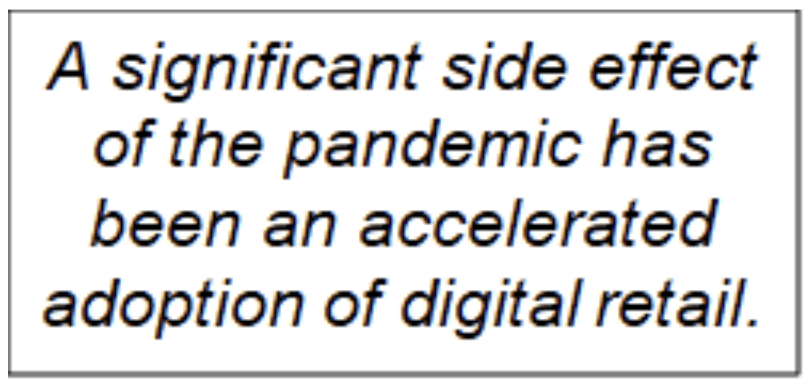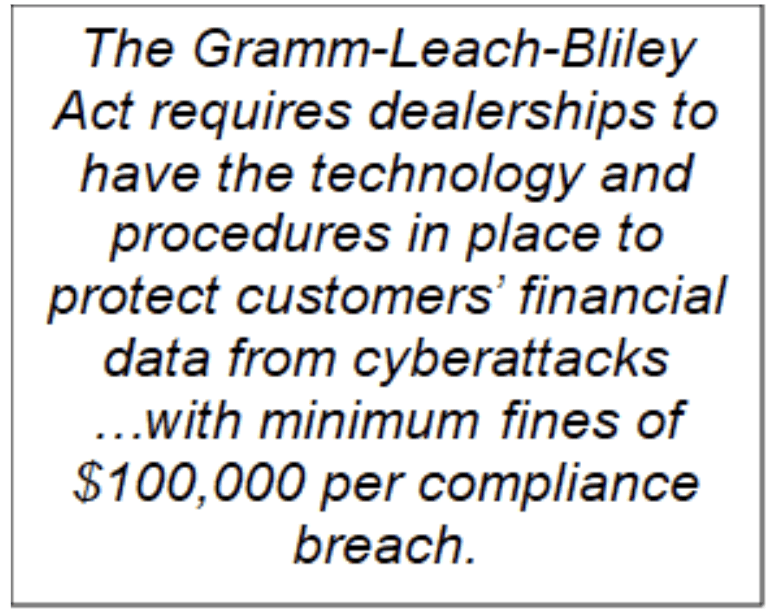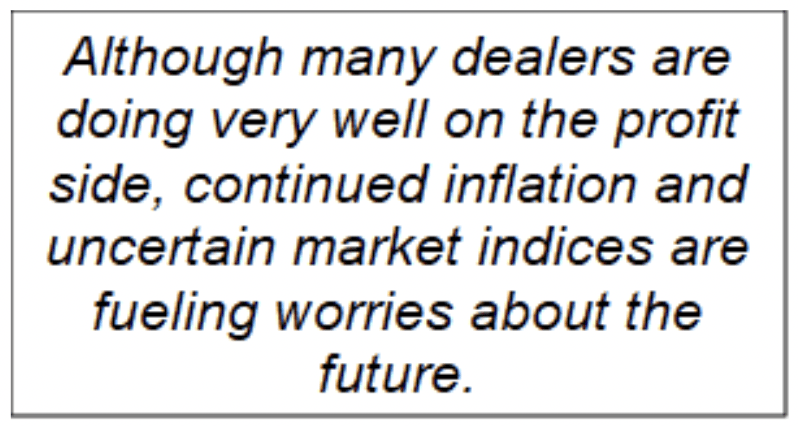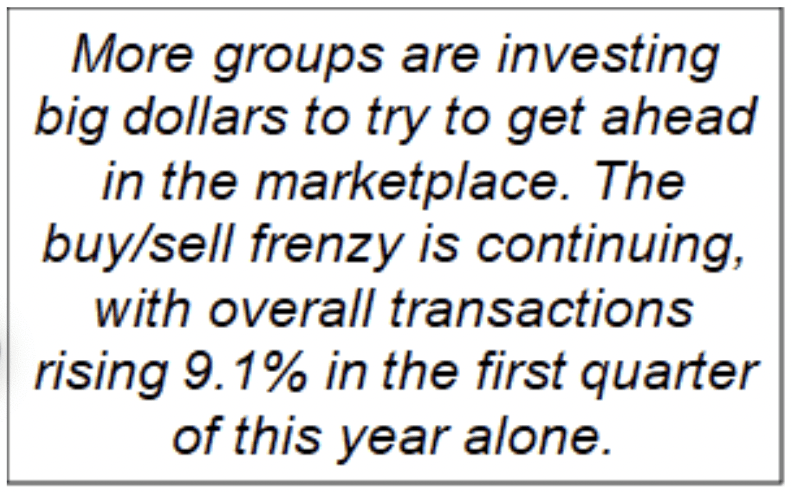A whirlpool of uncertainty is challenging today’s automotive industry – and dealerships are being pulled into the vortex, looking for a way forward in an environment where no easy answers exist. Dealers are being pressured with having to invest in upgrades for the EV future, merge with or acquire other dealerships, or sell their dealerships and move on.
Banking on experience and institutional knowledge can’t be counted on when the future of automotive dealerships will be, in many instances, a significant departure from the successful business models of the past. Knowing how to proceed is suddenly layered in unprecedented complexity, with scientific analysis taking center stage.
Three pressure points driving the decision-making process
Among the many pressure points dealerships of all sizes are challenged with confronting, three stand out: online process, consumer preference and manufacturer policy.


Momentum for online sales is building.² In fact, 74% of global automotive executives believe 40% of new vehicles will be sold directly to the consumers online. And consumers are beginning to expect online options, too – 60% expect dealerships to have fully online purchasing available.
2. Consumer preference. Auto buyers are beginning to question dealer relevance in the vehicle-buying process. In fact, in a recent Harris Poll³ study commissioned by Urban Science, it was found that auto buyers are not completely convinced today’s dealers are relevant…or putting in the effort to become so.
This is especially true when consumers were asked about dealership preparedness for the electric future. In this regard, the poll showed a significant gap between what auto buyers believe about dealership readiness for the future (30%), compared to what dealers believe about their own dealership readiness (50%).
3. Manufacturer policy. With the pressure to convert dealerships to be “EV ready,” OEMs are increasingly requiring dealers to invest or sell.⁴ The costs for dealerships to become EV compliant are significant and vary by manufacturer. They are, not surprisingly, especially burdensome to smaller dealerships or dealership groups in smaller metro or rural areas. Ford, for example, is asking its nearly 3,000 dealers to invest upwards of one million dollars for upgrades to sell all-electric vehicles.⁵
New laws and bills: A fourth factor that may be the tipping point

There’s another factor complicating the buy/sell equation for dealers: new government regulations – even for regulations that, originally, didn’t apply to auto dealerships. One such regulation is the Gramm-Leach-Bliley Act, which was originally put in place by the Federal Trade Commission to ensure that banks and other financial institutions would have technology and procedures to protect their customers’ financial data from cyberattacks and breaches. The FTC, however, then extended this safeguards rule to non-bank financial institutions, including automobile dealerships.
The new rule took effect on January 10, 2022, with the FTC giving dealers up to one year to update processes and comply. Small dealerships, in particular, may feel unduly burdened by the rule, since many of those dealerships don’t have the technical people they need on staff – and the fines are stiff. Dealerships that fail to comply could see minimum fines of $100,000 per compliance breach…and the deadline to comply is now less than four months away.
The FTC-proposed Motor Vehicle Dealers Trade Regulation Rule adds another layer of challenges of dealerships of all sizes. Although the goal of the rule is to make the car-buying process more clear and competitive, the implications carry critical operational and compliance risks for dealers.
The proposed rule, however, may cause confusion for both the consumers it seeks to protect, and the dealers tasked with following it. For example, disclosures relating to advertising and cost that are required under the proposed rule overlap with, and at times are inconsistent with, the requirements of the Truth in Lending Act.
Furthermore, in today’s culture of transparency, dealers need to be extra vigilant. It’s not only the cost of the fines that’s at stake, but also a dealership’s reputation and the potential erosion of long-term customer loyalty for those who break the rules – intentionally or not.
The tightrope between pessimism and optimism


Making informed decisions will require carefully weighing all of these factors – and many more. That includes the cost of running a dealership, which is now at its highest point since 2017.⁶
Although many dealers are doing very well on the profit side, continued inflation and uncertain market indices are fueling worries about the future.
But how does all of that translate to a future where manufacturers are requiring even further investments from dealerships in order to remain compliant in the eyes of their OEM? And where dealers must commit to creating a consistent, omni-channel experience for consumers?
The answers to those questions require analyses of the specific situations under consideration. Still, a good proportion of dealers anticipate that the value of their dealerships will continue to rise. According to Kerrigan Advisors,⁷ 61% of dealers in a 2021 report believed their dealership will increase in value – up from 33% in 2020.
The confluence of the forces at play is propelling the buy/sell trend and, in many cases, forcing smaller dealers out. Then there’s the question of who will be making buy/sell decisions. A lack of succession plans at many dealerships further “muddies the water” on who will sell now – or hold out – for the future.
The difference between a good investment and a bad one is in the data


Although buy/sells are happening at both the private and public level, private buy/sells represented 71% of all transactions in the U.S. in 2021.
Merge? Acquire? Sell? Dealers need access to detailed market-level brand and dealer performance data to understand their potential investments before making any decisions. Different dealerships, in different geographies – whether metros or rural – require different strategies. Now, more than ever, deciding to hold (or to sell) needs to be based on facts backed by science, not emotion.
Science as a Solution. Since our founding over four decades ago, our proven, scientific approach to dealership planning has continued to improve and evolve. It’s an approach that stays ahead of the technological curve to help improve the performance of dealership networks – and it continues to be the industry standard.
If you’d like to talk to someone at Urban Science about analyzing the many factors impacting your buy/sell dealership decisions, call or email me. And let us show you how we can apply the power of science to your challenges.
- “Consumers Embrace Online Car Buying,” https://www.progressive.com/resources/insights/online-car-buying-trends/
- “2021 Year End Kerrigan Advisors Blue Sky Report”
- Conducted online by The Harris Poll on behalf of Urban Science, the auto-buying public survey was conducted. Data are weighted where necessary by age, gender, race/ethnicity, region, education, marital status, household size, employment, and household income and propensity to be online to bring them in line with their actual proportions in the population.
- GM to Offer Buyouts to U.S. Buick Dealers as it Moves to Make Brand Electric,”
https://www.washingtonpost.com/business/economy/gm-to-offer-buyouts-to-us-buick-dealers-as-it-moves-to-make-brand-electric/2022/09/02/175161d8-2aad-11ed-806e-f01a46624ddb_story.html#:~:text=GM%20offers%20buyouts%20to%20U.S.%20Buick%20dealers&text=General%20Motors%20said%20Friday%20it,2030%20in%20the%20United%20States. - “Ford Asks Dealers to Invest in EVs as it Chases Tesla-Like Profit,” https://www.cnbc.com/2022/09/14/ford-outlines-ev-investment-structure-for-its-dealers-as-it-chases-tesla-like-profit.html
- “U.S. Auto Dealers’ Attention Turns to Inflation, High Costs and Inventory,”
https://www.autosuccessonline.com/auto-dealers-inflation-costs-inventory/ - “2021 Year End Kerrigan Advisors Blue Sky Report”
- “Record Number of Buy/Sell Transactions,” Kerrigan Advisors’ Blue-Sky Report
Did you enjoy this article? Please share your thoughts, comments, or questions regarding this topic by connecting with us at newsroom@cbtnews.com.
Be sure to follow us on Facebook, LinkedIn, and TikTok to stay up to date.
While you’re here, don’t forget to subscribe to our email newsletter for all the latest auto industry news from CBT News.



